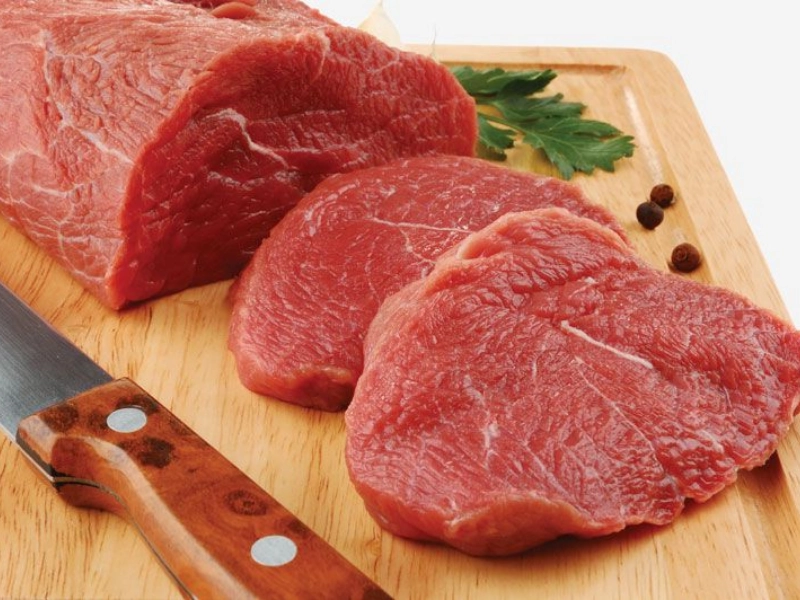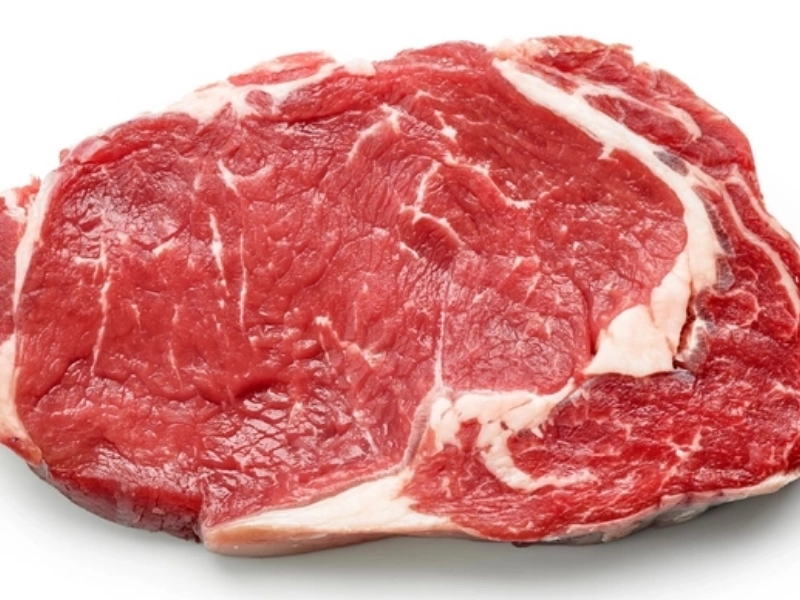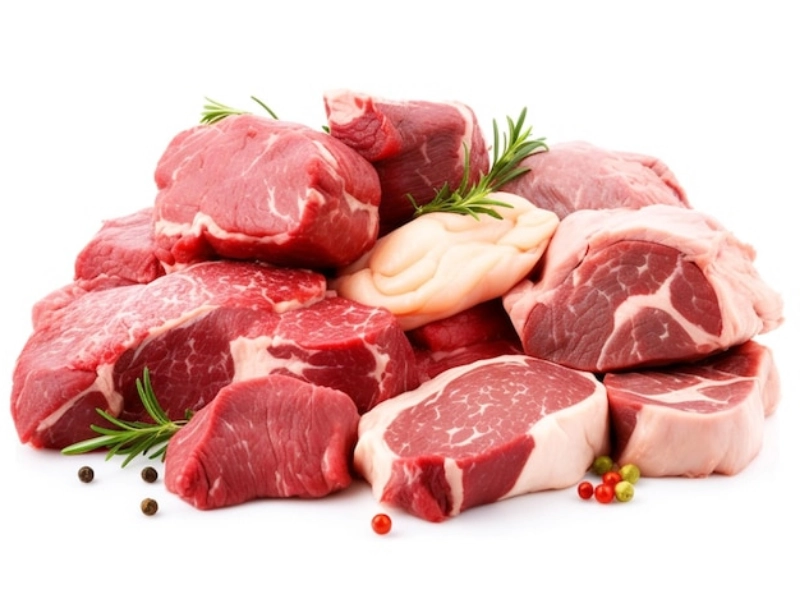Though its delicious taste and adaptability in cooking are much valued, beef also significantly supports bone health. Packed in vital minerals, including protein, iron, zinc, and several vitamins, beef can help to keep strong bones and ward against disorders such osteoporosis. The nutritional elements of beef that support bone health are investigated in this post together with advice on how to include it into a balanced diet and comparisons with other protein sources.
 A nutrient-dense diet, beef offers a rainbow of vital minerals and vitamins needed for strong bones. Protein is one of the main elements; it is essential for the development and healing of tissues including bones. Especially in older persons, enough protein helps preserve bone density and strength. Furthermore, beef is a great source of heme iron—more readily absorbed by the body than non-heme iron derived from plant sources. Red blood cells are produced from iron, which also helps the bones to get oxygen and therefore supports their health and operation. Moreover, beef is high in vital vitamins including B12, which helps the red blood cell production and preserves general bone health.
A nutrient-dense diet, beef offers a rainbow of vital minerals and vitamins needed for strong bones. Protein is one of the main elements; it is essential for the development and healing of tissues including bones. Especially in older persons, enough protein helps preserve bone density and strength. Furthermore, beef is a great source of heme iron—more readily absorbed by the body than non-heme iron derived from plant sources. Red blood cells are produced from iron, which also helps the bones to get oxygen and therefore supports their health and operation. Moreover, beef is high in vital vitamins including B12, which helps the red blood cell production and preserves general bone health.
 A key protein, collagen gives connective tissues, cartilage, and bones strength and structure. Especially cuts with tendons and ligaments, beef is high in collagen and therefore good for bone strength. Collagen generation falls with aging, which weakens bones and raises fracture risk. Eating foods high in collagen, such as beef, helps the body naturally synthesize collagen, thus strengthening and integrity of the bones is promoted. Furthermore demonstrated to increase bone mineral density is collagen, hence strengthening general bone health. One delicious approach to increase your collagen intake and strengthen your skeletal system is including beef into your diet.
A key protein, collagen gives connective tissues, cartilage, and bones strength and structure. Especially cuts with tendons and ligaments, beef is high in collagen and therefore good for bone strength. Collagen generation falls with aging, which weakens bones and raises fracture risk. Eating foods high in collagen, such as beef, helps the body naturally synthesize collagen, thus strengthening and integrity of the bones is promoted. Furthermore demonstrated to increase bone mineral density is collagen, hence strengthening general bone health. One delicious approach to increase your collagen intake and strengthen your skeletal system is including beef into your diet.
 Another vital element included in beef that is absolutely important for bone health is zinc. It is important in mineralization and bone production, hence preserving bone density and strength. While stopping the activity of osteoclasts, the cells that break down bone tissue, zinc also boosts the activity of osteoblasts, the cells in charge of building bones. Maintaining good bone turnover and avoiding disorders like osteoporosis depend on this equilibrium. Including beef in your meals can help greatly increase your daily zinc intake since it is among the top dietary sources of zinc and will strengthen your bones in the process.
Another vital element included in beef that is absolutely important for bone health is zinc. It is important in mineralization and bone production, hence preserving bone density and strength. While stopping the activity of osteoclasts, the cells that break down bone tissue, zinc also boosts the activity of osteoblasts, the cells in charge of building bones. Maintaining good bone turnover and avoiding disorders like osteoporosis depend on this equilibrium. Including beef in your meals can help greatly increase your daily zinc intake since it is among the top dietary sources of zinc and will strengthen your bones in the process.
 Although many foods can help with bone health, beef is particularly noteworthy because of its special nutritional makeup. Unlike other plant-based proteins, beef offers a complete protein—that is, all nine essential amino acids the body needs. Bone health depends especially on this completeness since collagen formation and general bone structure depend on amino acids. Furthermore, compared to many plant-based choices, beef provides more of some vitamins and minerals including iron and zinc. Although you should include a range of protein sources in your diet, beef can be quite important in supporting ideal bone health.
Although many foods can help with bone health, beef is particularly noteworthy because of its special nutritional makeup. Unlike other plant-based proteins, beef offers a complete protein—that is, all nine essential amino acids the body needs. Bone health depends especially on this completeness since collagen formation and general bone structure depend on amino acids. Furthermore, compared to many plant-based choices, beef provides more of some vitamins and minerals including iron and zinc. Although you should include a range of protein sources in your diet, beef can be quite important in supporting ideal bone health.
Including beef in your diet might be good for your bone condition as well as quite tasty. One can eat beef in several ways that guarantee a balanced diet. Lean cuts that offer the nutritious value of beef without too much saturated fat are sirloin or tenderloin. A healthy and filling dinner can be made by grilling, roasting, or stir-fying beef with a range of veggies. Combining beef with foods high in calcium, including dairy products or leafy greens, will help it even further assist bone development. Enjoy beef while supporting your bone health by being aware of cooking techniques and amount sizes.
Although bone health depends much on nutrition, lifestyle choices are just as crucial. Particularly weight-bearing activities, regular physical exercise helps increase general bone density and strengthen bones. Furthermore greatly lowering the incidence of bone-related problems is avoiding smoking and moderation of alcohol intake. Combining a good lifestyle with a diet high in bone-supporting elements like those found in beef can provide a potent method for preserving robust bones. Knowing how diet and lifestyle interact can help you to be proactive in maximizing your bone condition.
Like any health-related issue, personalised advice on nutrition and bone health depends on consulting healthcare professionals. A licensed dietitian or nutritionist can evaluate your eating patterns and suggest suitable adjustments to guarantee you are getting the nutrients needed for bone support. Considering any dietary limitations or health issues, they can offer direction on including beef and other bone-friendly items into your meals. Seeking professional guidance will help you design a customized plan supporting your general well-being and bone condition.